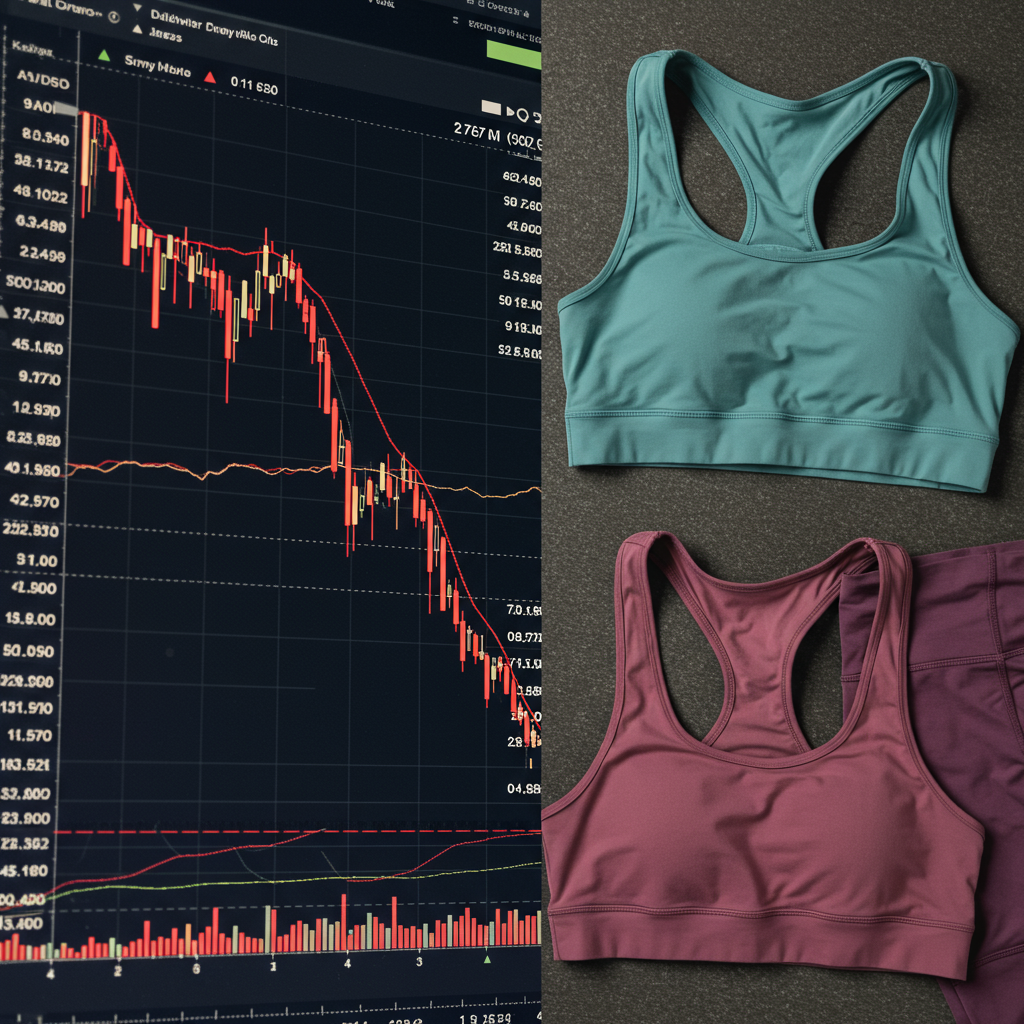Lululemon Shares Tumble as Tariffs and Economic Fears Mount
Athleisure giant Lululemon Athletica (LULU) saw its shares plunge by over 20% after the company significantly cut its annual profit forecast. The revised outlook comes as the retailer grapples with the dual pressures of escalating tariffs and growing concerns about a slowdown in the U.S. economy.
The company pointed to several factors impacting its performance, including lower store traffic in the Americas. In a statement, Lululemon cited economic uncertainty, persistent inflationary pressures, decreased consumer confidence, and shifts in discretionary spending patterns as contributors to this trend.
Navigating the Impact of Tariffs
Lululemon is among a growing list of major companies acknowledging the financial bite of U.S. President Donald Trump’s trade policies. The administration’s approach to imposing steep levies on imported goods, particularly from key manufacturing hubs in Asia like China and Vietnam, has directly increased costs for businesses relying on global supply chains.
Reports indicate that the recently announced “Liberation Day” tariffs, set to take effect with varying rates, include significantly higher duties on goods from countries like China (up to 54%) and Vietnam (up to 46%). Given that Lululemon sourced 40% of its products from Vietnam and 28% of its fabrics from mainland China last year, these tariff increases present a direct challenge to its operational costs.
The impact of these tariffs extends beyond individual companies, raising broader concerns among economists about rising prices for consumers, potential supply chain disruptions, and a weakening overall economy. The Congressional Budget Office (CBO) has projected that such sweeping tariffs could shrink the U.S. economy while simultaneously driving up inflation and reducing household purchasing power. Federal Reserve reports like the “Beige Book” have also noted that higher tariffs are increasing costs and prices across sectors.
Wider Industry Pain and Consumer Pressures
The challenges faced by Lululemon are not isolated. The retail sector, particularly apparel and footwear brands with extensive Asian manufacturing, has been hit hard.
Price Hikes: Sportswear giants like Adidas and Nike have already warned that import taxes will necessitate price increases on popular items in the U.S. Adidas explicitly stated that since most products cannot be made domestically, tariffs will lead to higher costs for consumers. Nike similarly announced price adjustments on some trainers and clothing.
Revised Forecasts: Skechers previously withdrew its annual results forecast, citing the dynamic and uncertain economic environment. Luxury home furnishings retailer RH also saw its stock plummet after a weak outlook tied partly to tariff concerns impacting its supply chain, heavily sourced from Asia. Other retailers like Five Below and Best Buy have also experienced significant stock drops amid fears surrounding the new tariffs.
- Economic Headwinds: Across the board, businesses are feeling pressure. Economists from various institutions have raised alarm bells, with some projecting increased risk of a U.S. recession, predicting potential negative growth in disposable income and contraction in consumer spending due to tariff-induced costs and uncertainty. The broader market recently experienced its worst sell-off since 2020, largely attributed to the tariff announcements, impacting everything from tech giants to homebuilders.
- https://www.bbc.com/news/articles/cq5ggew08eyo
- https://finance.yahoo.com/news/live/stock-market-today-dow-plunges-1700-points-nasdaq-sp-500-pummeled-in-biggest-rout-since-2020-200415736.html
- https://finance.yahoo.com/topic/tariffs/
- https://www.investopedia.com/news/gms-stock-seen-skidding-bear-market/
- https://qz.com/walmart-costco-target-trump-tariffs-chinese-suppliers-1851774500
Retail executives and industry groups, including the National Retail Federation (NRF), warn that the rising costs from tariffs could inevitably be passed on to consumers through higher prices on a wide range of goods, potentially dampening overall consumer demand.
Lululemon’s Strategy Amidst Headwinds
To mitigate the financial impact, Lululemon’s finance chief indicated the company is planning “strategic price increases” on a small, modest portion of its product assortment. Additionally, the company intends to cut costs internally and negotiate with its vendors to absorb some of the pressure.
While some retailers with significant domestic sourcing might be better positioned to navigate the tariff landscape, companies heavily reliant on international production face increased costs and complexity. The current environment underscores the volatility introduced by trade policy shifts and highlights the challenge for businesses and consumers alike as the costs ripple through the economy.




